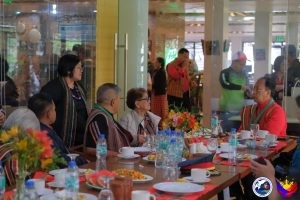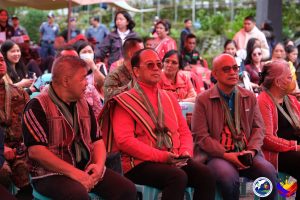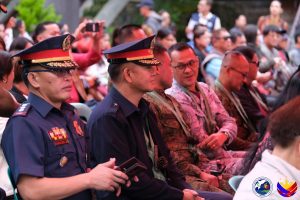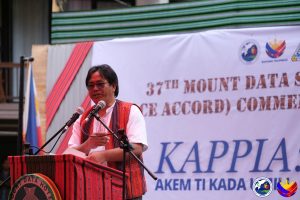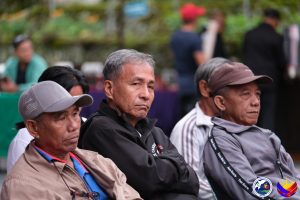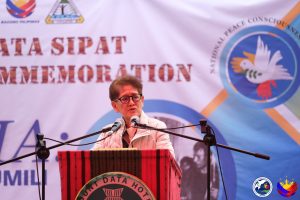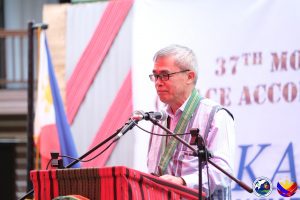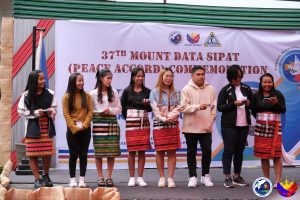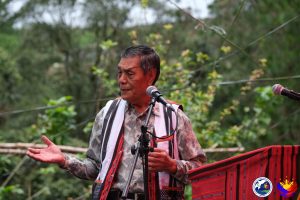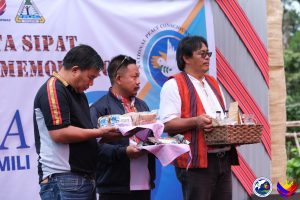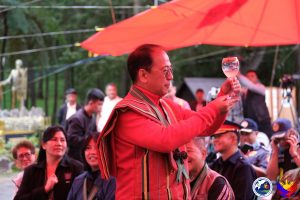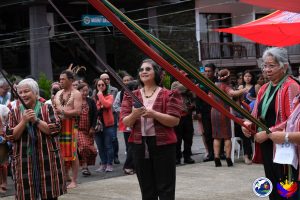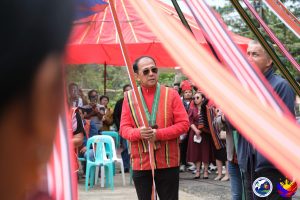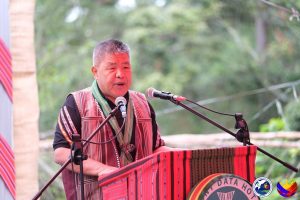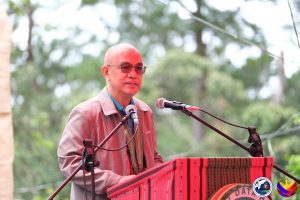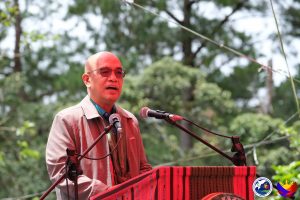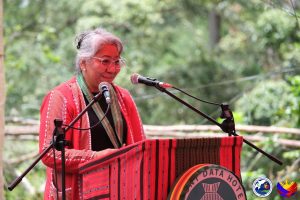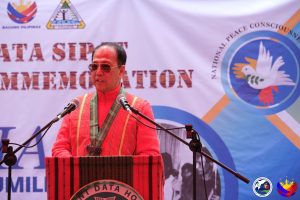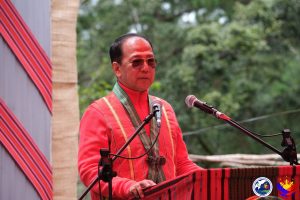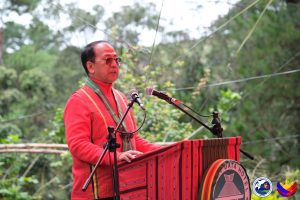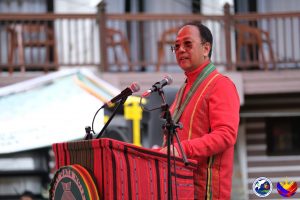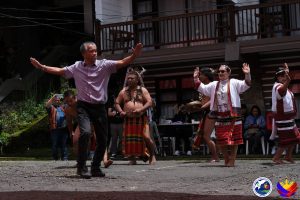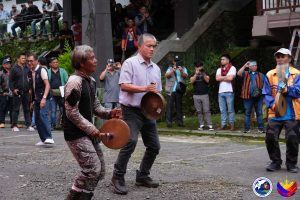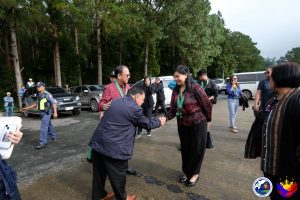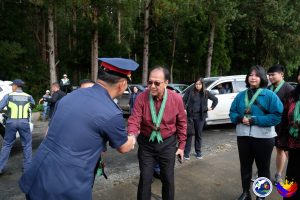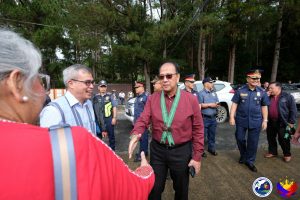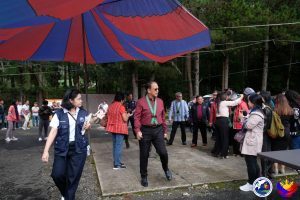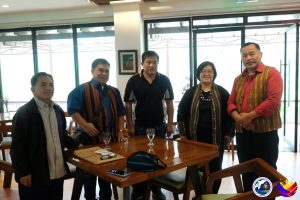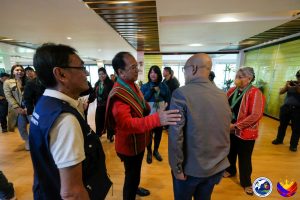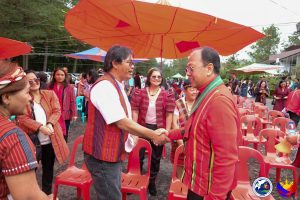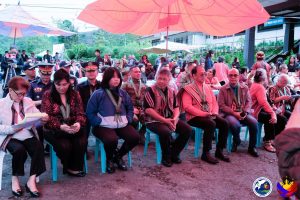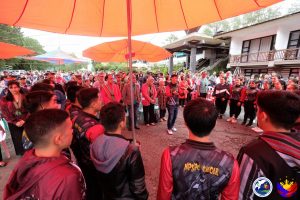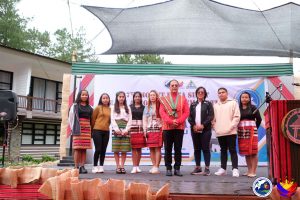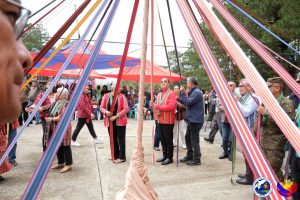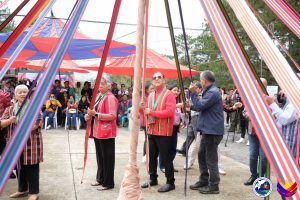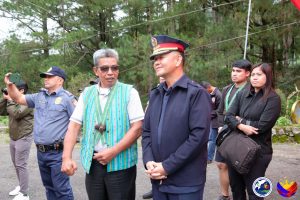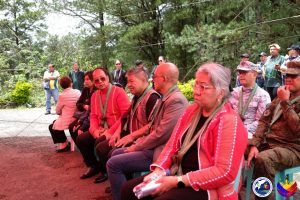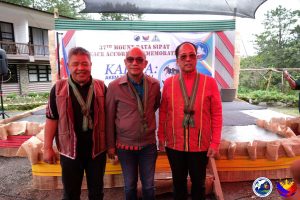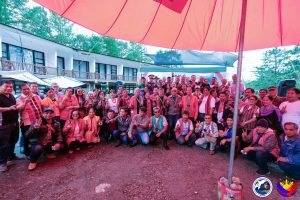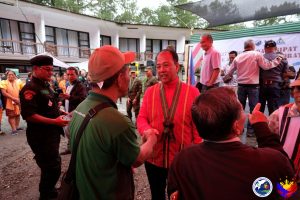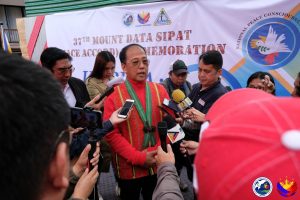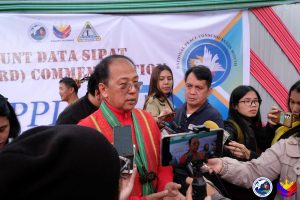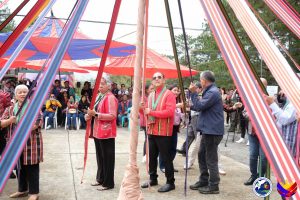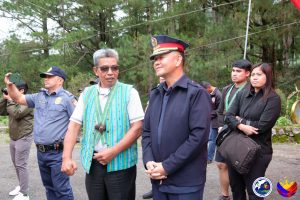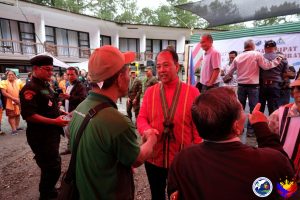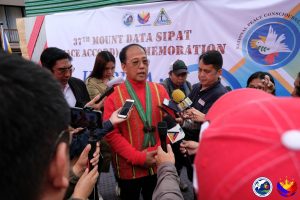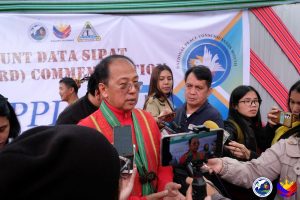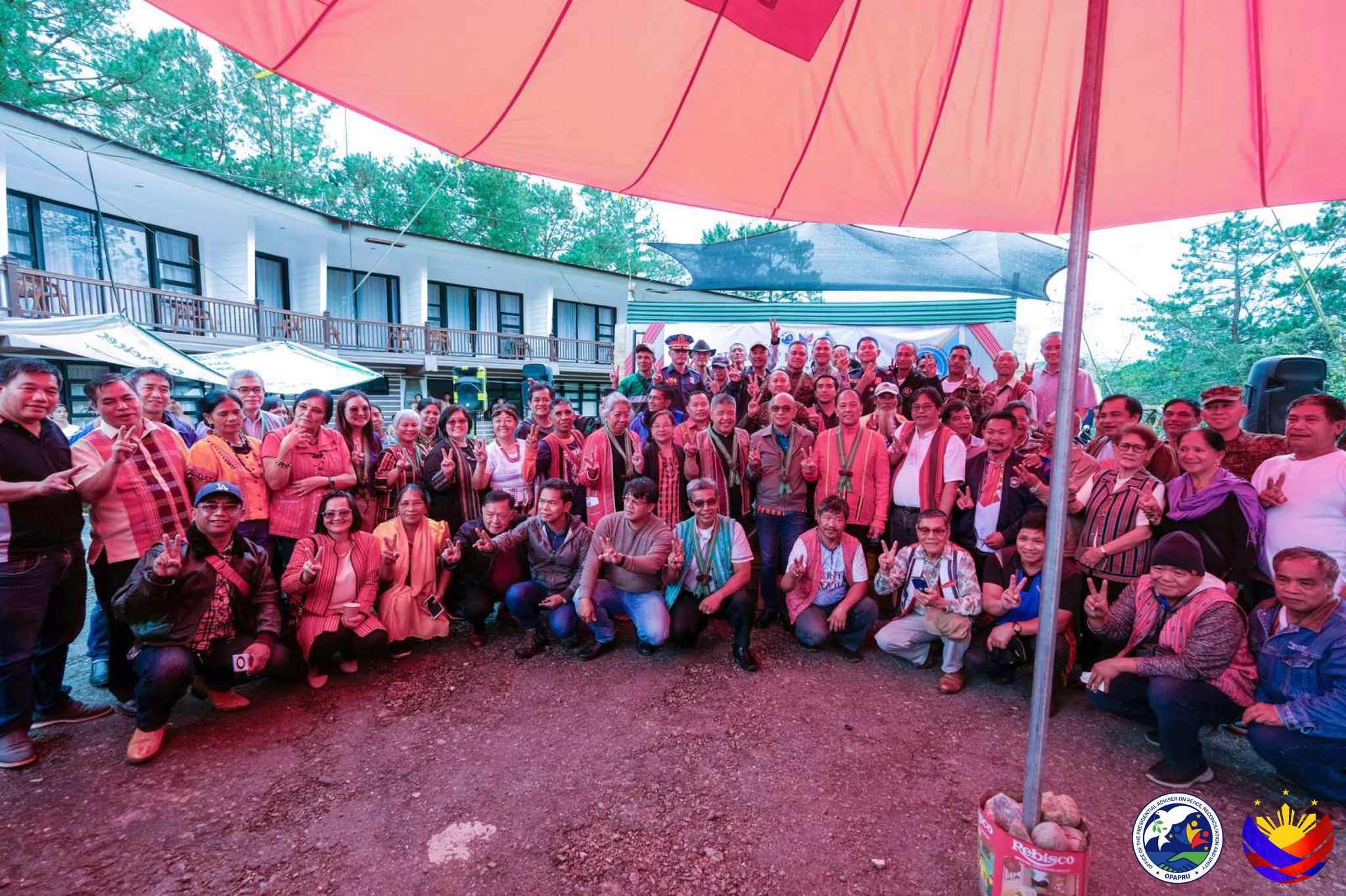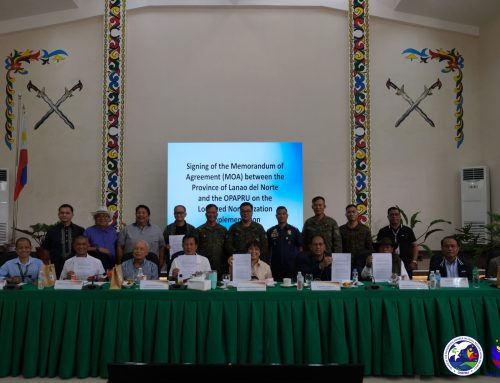BAUKO, MOUNTAIN PROVINCE — The legacy left by those who were behind the ‘Sipat’ Mount Data peace accord in the Cordillera will continue to live on in the hearts and minds of the people thirty-seven years after its signing.
This was the assurance given by representatives from line agencies, local government units (LGUs), private sector, civil society, peace advocates and locals during the 37th anniversary of the forging of the Sipat here at the Mt. Data Hotel on Wednesday, September 13.
Historic peace talks
To recall, the historic peace deal was inked on September 13, 1986. The Cordillera People’s Liberation Army (CPLA), led by Fr. Conrado Balweg, heeded the call for peace by the late President Corazon C. Aquino through the signing of a ceasefire agreement, which became known as the Mt. Data Peace Accord or ‘Sipat.’
According to Bauko Mayor Randolf Awisan, the very essence of the ‘Sipat’ is reflected in how the Cordillerans collectively uphold peace in their communities and across the region.
“Looking back, our forefathers fought for a peaceful community that we are enjoying and sustaining today. And with that, their efforts will never be in vain. Over 37 years, we have kept winning peace in our community, intensified by our active participation and cooperation towards socio-economic progress,” Awisan said.
Among the activities held during commemoration included the traditional offering or ‘atang’ led by the elders, presentation of OPAPRU-NCIP SEAP graduates, the weaving of 37 colorful strings of peace, as well as various cultural and community dances.
Cordillera’s push for genuine autonomy
According to Edna Tabanda, co-chairperson of the Regional Development Council – Cordillera, commemorating the signing of the “Sipat’ is the Cordilleran people’s way of reminding themselves of the significance of the event, and their steadfast commitment to achieve a genuine and meaningful autonomy in the region.
“The establishment of the Cordillera Autonomous Region is the best option for a just and lasting peace and inclusive growth where indigenous knowledge, practice, and culture sensitive governance will be adopted,” Tabanda said.
She noted that once granted full autonomy, the Cordillera Regional Government will be empowered to enact policies and implement programs that are more responsive to the needs of its people, while promoting indigenous knowledge, systems, and practices for sustainable development.
For their part, Mountain Province Governor Bonifacio Lacwasan Jr. and Kalinga Province James Edduba, who attended the commemoration, reaffirmed their commitment to the Cordilleran’s call for genuine autonomy.
The governors emphasized that autonomy will empower the Cordillerans to craft policies, programs, and initiatives which are in line with their people’s unique needs, and consequently, respond to the challenges they are facing.
“Our commitment to autonomy is rooted in the belief that we, the Cordillerans, know what is best for our region,” Edduba said.
Getting all sectors on board
In her message during the event, National Economic and Development Authority (NEDA)- CAR Regional Director Susan Sumbeling said that a series of information and education campaigns (IEC) have been rolled-out, which are specifically tailored-fit for the youth and civil society organizations in recognition of their vital role in the overall advocacy effort.
“In line with this year’s National Peace Consciousness Month’s theme, ‘Kapayapaan: Responsibilidad ng Bawat Mamamayan,’ peace and security in the region shall be pursued through a whole-of-a-society approach,” which entails not only the active participation of government agencies, but also the private sector and members of the communities themselves,” Sumbeling said.
She added that since the adoption of regional autonomy as the overarching theme for Cordillera’s development, the RDC-CAR has actively advocated the push for regional autonomy through the Social Preparation of CAR (SPCAR) into an Autonomous Region.
“This year, the program has successfully conducted 10 information, education, and communication campaigns or IECs, one alliance building activity, and four capability-building activities. To further propagate the message of autonomy at the grassroots level, the program focused on conducting IECs in municipalities with no prior IECs,” she said.
The NEDA is an independent cabinet-level agency of the Philippine government which is mainly responsible for economic development and planning. It is headed by the President of the Philippines as chairman of the NEDA board, with the Secretary of Socioeconomic Planning as vice-chairman.
Meanwhile, Lacwasan said he is confident in the efforts to push for greater autonomy in the Cordillera, as he has seen the persistence of his people and the genuine support coming from the national leadership.
“With our persistence and the support of our partners from the national leadership, I am optimistic that our pursuit for self-determination will soon be realized,” he said.
Continuous implementation of Sipat agreement
Presidential Peace Adviser Carlito Galvez Jr. assured the Cordillerans of the OPAPRU’s continuous support to the region’s quest for genuine and meaningful autonomy.
“We continue to support the quest for autonomy in Cordillera. There are pending bills at Congress. These are House Bill 3267 and Senate Bill 2275. We are working with NEDA-CAR, under its social preparation for Cordillera autonomy because it is their primary mandate to ensure the support for the autonomy enshrined in our constitution. We are aggressively conducting IEC throughout these areas to promote autonomy,” he said in his remarks during the celebration.
“We continue to fulfill the Sipat. Part of which is the establishment of autonomy, and the continuing community development projects such as roads, bridges in Geographically Isolated and Disadvantaged Areas (GIDAS),” Galvez said.
“On top of these, the OPAPRU is actively promoting the localized peace engagements in Abra and Kalinga. We encourage every sector here to contribute to the peace process in the Cordillera — towards a more developed and peaceful Philippines,” he added. ###